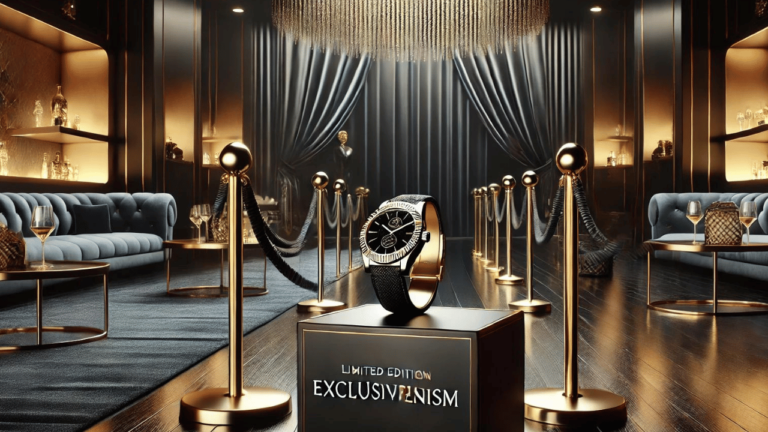Exclusivenism has become a key concept in modern consumer culture, standing at the intersection of luxury, scarcity, and status. In this blog post, we’ll dive deep into exclusivenism, explaining its principles, how it drives consumer behaviour, and why it aligns with sustainable living. Additionally, we will explore how exclusivenism impacts small businesses and creative industries. Throughout this post, we will use the keyword exclusivenism to ensure clarity and relevance for SEO optimization.
What is Exclusivenism?
At its core, Exclusivenism refers to creating a selective, elite status only available to a limited group of people. This is common in luxury brands, exclusive clubs, or limited-edition product releases. The foundation of exclusivenism is offering something hard to attain, driving demand through scarcity and exclusivity.
The term exclusivenism has become a driving force in how brands operate and market their products. Whether it’s access to a private club or owning a rare, limited-edition item, exclusivenism increases an item’s desirability by restricting who can have it.
The Key Principles of Exclusivenism
Several fundamental principles govern exclusivenism and its influence on contemporary markets:
Scarcity and Limited Availability
The principle of scarcity is central to exclusivenism. Scarcity heightens the allure of a product or service, making it more desirable to those who can afford it. Brands like Rolex, Louis Vuitton, and Supreme have successfully capitalized on this by creating limited-edition products only available to a select few.
Status and Social Prestige
The idea of exclusivenism plays heavily on social status. Being part of an exclusive group or owning a rare item often elevates an individual’s social standing. This is particularly visible in high-net-worth circles, where exclusivity signals success, wealth, and influence.
Quality Over Quantity
Exclusivenism is often associated with superior craftsmanship. Luxury brands are known for offering high-quality, meticulously crafted products far from mass-produced items. Consumers are willing to pay a premium for exclusive products with a guarantee of exceptional quality, reinforcing their limited availability.
Exclusivenism and Sustainable Living
In an age where sustainability is becoming increasingly important, exclusivenism surprisingly aligns well with eco-friendly practices. Limited, high-quality production means goods are made to last, reducing the need for constant replacements. Furthermore, many exclusive brands support small-scale artisans and use sustainable materials.
Reducing Waste Through Long-Lasting Products
One of the key environmental benefits of exclusivenism is its emphasis on creating long-lasting products. Instead of producing disposable items in landfills, exclusive brands focus on quality over quantity. Consumers invest in durable goods that they can use for years, leading to less waste.
Supporting Artisanal Crafts and Small-Scale Production
Many exclusive brands focus on craftsmanship, often supporting local artisans and traditional production methods. These small-scale operations have a lower environmental footprint than mass production and often use eco-friendly materials, helping preserve cultural heritage and reduce waste.
Exclusivenism’s Impact on Small Businesses
Exclusivenism can significantly benefit small businesses. Small businesses can tap into the exclusivity market by offering unique, handcrafted products or services. Consumers who value distinctiveness over mass-market products often support these businesses, allowing them to thrive in niche markets.
Creating a Unique Market Niche
Small businesses that adopt exclusivenism create a unique niche by offering something that isn’t widely available. This strategy allows them to stand out from the competition and appeal to consumers who seek rarity and high quality.
High-Quality Materials and Skilled Labor
Exclusivity often allows businesses to charge premium prices, which can be reinvested into obtaining higher-quality materials and hiring skilled labour. This, in turn, enhances their reputation for offering superior products and keeps their customer base loyal.
The Role of Exclusivenism in Fostering Creativity
Exclusivenism nurtures creativity and innovation, particularly in the arts and cultural sectors. Exclusivenism encourages designers and artists to push the boundaries of creativity by focusing on high-quality, limited-edition items.
Encouraging Unique Designs and Concepts
By creating an environment where uniqueness is celebrated, exclusivenism allows designers and artists to experiment with new concepts and ideas. Consumers are willing to pay a premium for one-of-a-kind pieces, which helps support innovation in design and craftsmanship.
Preserving Traditional Art Forms
Many exclusive brands rely on traditional craftsmanship, which is in danger of being lost due to mass production. By focusing on artisanal methods, exclusivenism helps preserve these skills, passing them down through generations while fostering innovation within established techniques.
Conclusion: Exclusivenism as a Positive Force in Modern Markets
In conclusion, exclusivenism goes beyond simply creating scarcity. It represents a deeper connection to quality, sustainability, and creativity. By supporting exclusive products and services, consumers can enjoy the benefits of higher craftsmanship and contribute to a more sustainable future. Furthermore, small businesses, artisans, and creative industries thrive in an environment where uniqueness and exclusivity are valued.
As the world continues to evolve, so will the concept of exclusivenism, pushing the boundaries of what is considered valuable in a society driven by materialism and sustainability.
FAQs About Exclusivenism
What is exclusivenism?
Exclusivenism refers to creating a selective and elite status around a product, service, or membership by limiting access to a small group of people.
How does exclusivenism benefit small businesses?
Exclusivenism allows small businesses to create niche markets by offering unique, high-quality products that appeal to consumers looking for exclusivity and rarity.
Is exclusivenism aligned with sustainable living?
Yes, exclusivenism promotes sustainability by focusing on durable, high-quality products that reduce the need for replacements, thus minimizing waste.
Why do luxury brands use exclusivenism?
Luxury brands use exclusivenism to create a sense of scarcity and desirability, elevating their products’ status and enabling them to charge premium prices.
How does exclusivenism foster creativity?
Exclusivenism fosters creativity by encouraging designers and artisans to produce unique, high-quality items that stand apart from mass-produced alternatives.

